Elon Musk: Walking out of meetings, and other advice from tech gurus
- Published

Nothing energises office workers more than complaining about meetings.
And it seems some of the world's greatest tech successes agree.
Here's some of their advice - and some analysis on whether or not to follow it.
Elon Musk: 'It is not rude to leave'
In a bid to boost production at his Tesla Model 3 car plants, Elon Musk sent out an email to staff in which he made some "recommendations" about streamlining operations.
"Walk out of a meeting or drop off a call as soon as it is obvious you aren't adding value," he went on.
"It is not rude to leave, it is rude to make someone stay and waste their time."
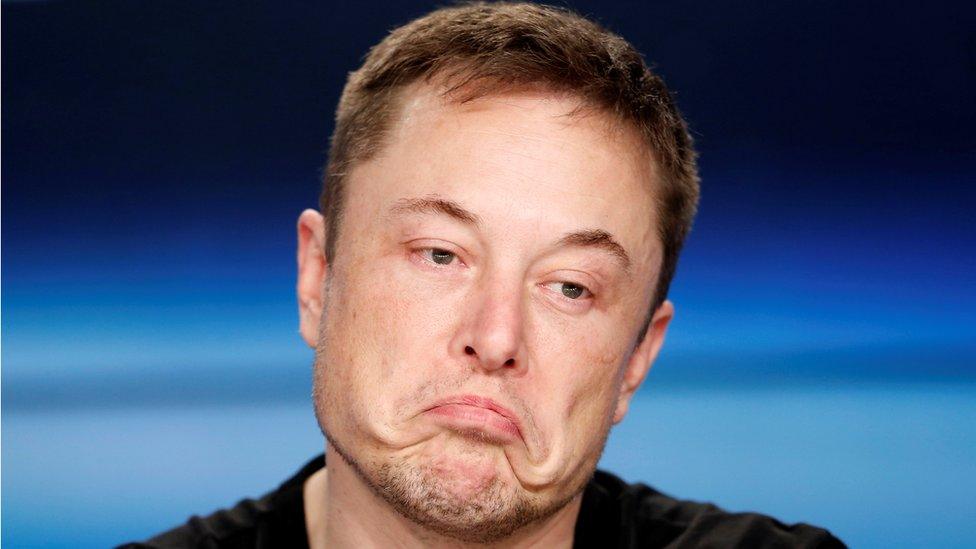
Elon Musk - not a fan of the business meeting
Professor André Spicer at City University of London's Cass Business School says that people often do leave meetings - by picking up their mobile phones.
"They may be there in person but they're not there mentally", he says.
He agrees that meetings can be a waste of time. But he also says that as businesses grow, the need for more connections among employees grows.
"Meetings help smooth that," he says. "They're a social preening ritual - just like monkeys picking the fleas off each others' backs."
Jeff Bezos: The 'two-pizza rule'
The Amazon founder meets investors in the web retailer for just six hours a year, and tries to avoid early morning meetings.
But Business Insider reports, external that Mr Bezos also has a strict strategy for meeting productivity: never have a meeting in which you couldn't feed the whole group with two pizzas.
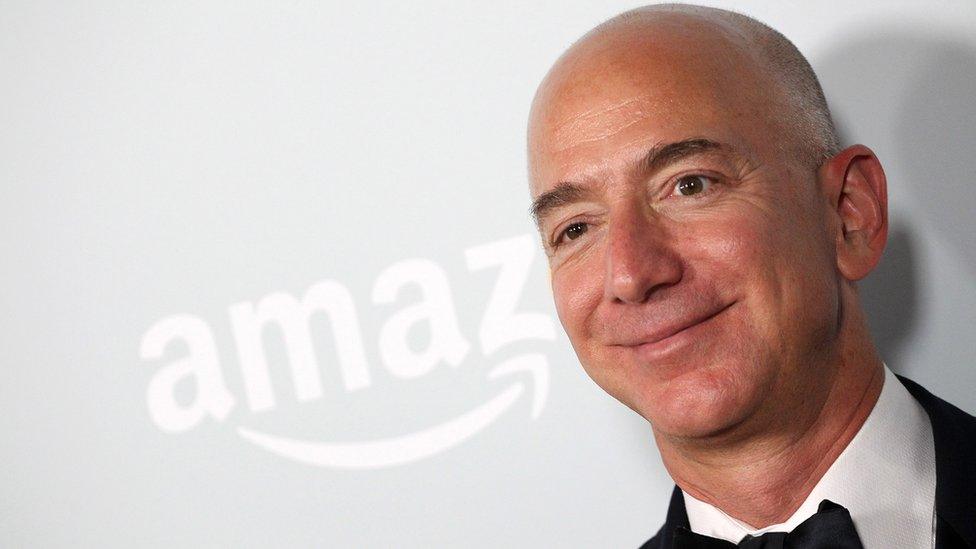
The Amazon founder swears by the "two-pizza rule"
The entrepreneur believes small groups are far more efficient than large ones, and the two-pizza rule helps him clamp down on meetings he thinks will waste his time.
Professor Spicer agrees, saying it can lead to one person talking at, not with, attendees.
"A large meeting is a recipe for a monologue," he says. "It's sometimes necessary to hear from the leader, but it's unnecessary to frame that as a meeting."
Mark Zuckerberg: A decision or a discussion?
The Facebook CEO reportedly streamlined meetings at the social media giant by asking managers the point of a meeting - to "make a decision or to have a discussion?"
This is to help define the purpose of the meeting.
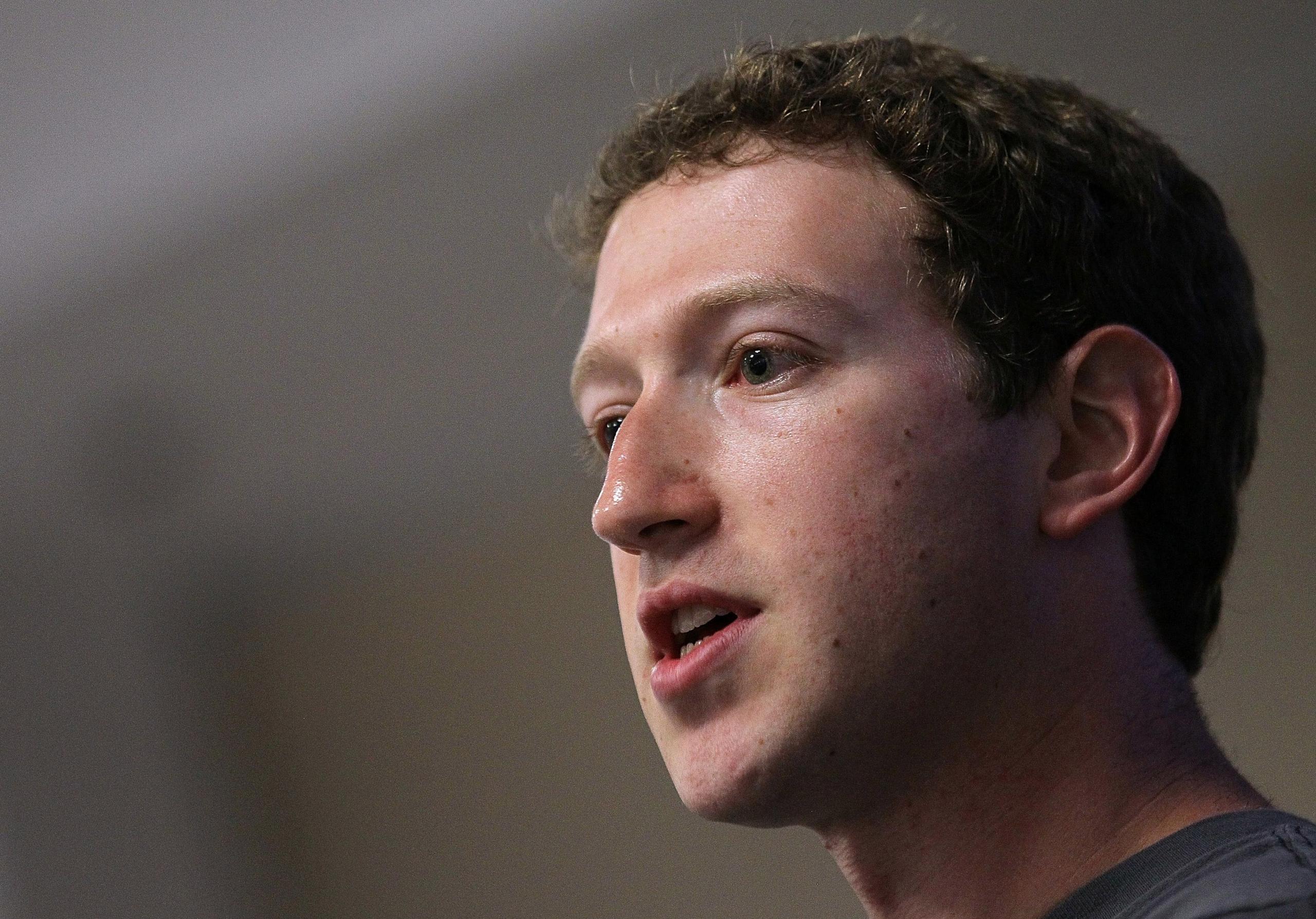
Mark Zuckerberg asks his staff to define the purpose of the meeting
Professor Spicer says meetings can sometimes lack direction from the start, saying they become an opportunity for people to "rant about person interests".
"If there's no point, then there are no decisions."
Microsoft founder Bill Gates might agree. He is attributed as saying: "You have a meeting to make a decision, not to decide on the question."
Steve Jobs: No need for PowerPoint
Walter Isaacson's biography of Steve Jobs has the creative genius behind the iPhone issue a damning attack on slideshow users.
"People who know what they are talking about don't need PowerPoint," he said.
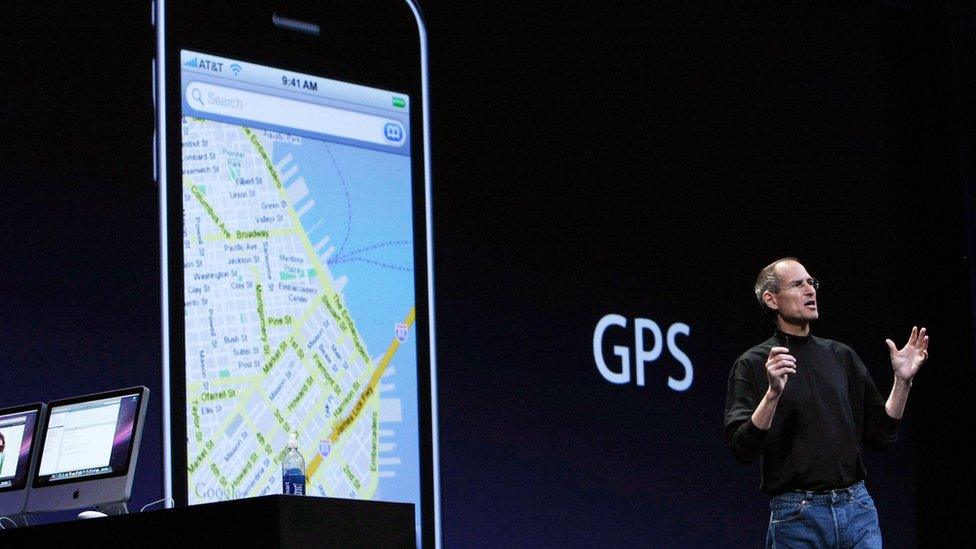
Steve Jobs was famous for his presentations at tech launches
Mr Jobs famously gave intricate presentations at product launches, using slides to hammer home his points with arresting visuals.
"Generally PowerPoints are a massive distraction, unless it's data or a graph," says Professor Spicer. "Long slides are a recipe for no information being conveyed."
So should we get rid of meetings?
"The first thing people hate most about work is emails, and the second is meetings", says Professor Spicer.
But while they can be nothing more than "empty rituals", they can be effective ways of promoting communication in businesses.
"There's a need to have communication and coordination," he says. "They're important, but we have too many of them."
Still, there are worse things in office life.
"Worse than meetings? Conference calls," says Professor Spicer. "Those things are just awful."
- Published18 April 2018
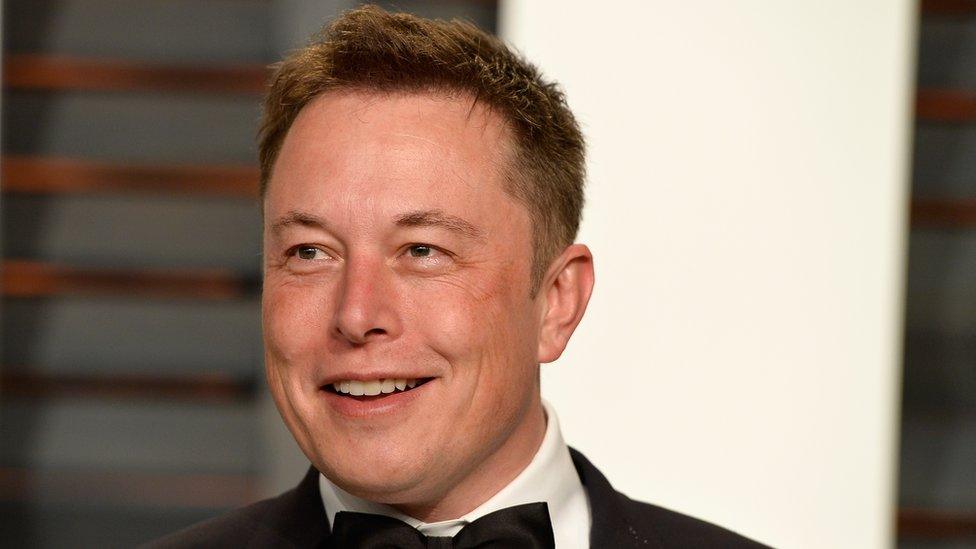
- Published9 August 2016
